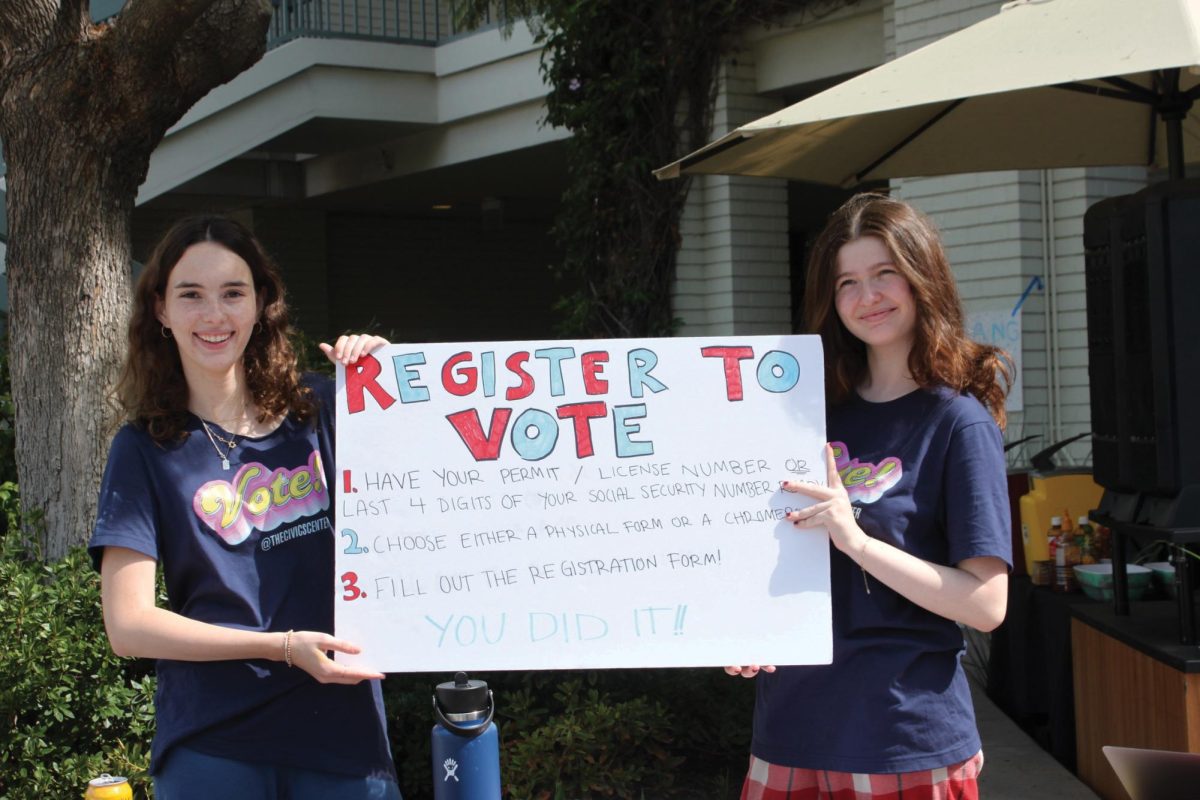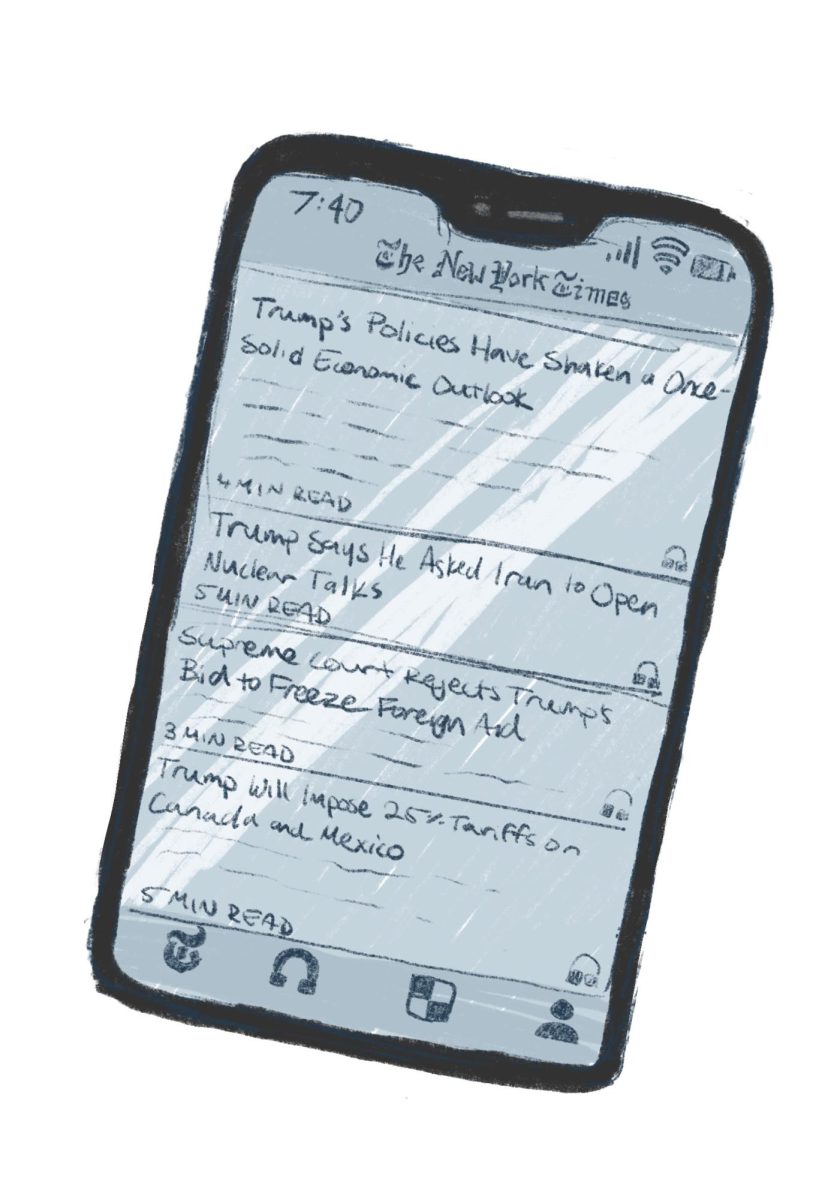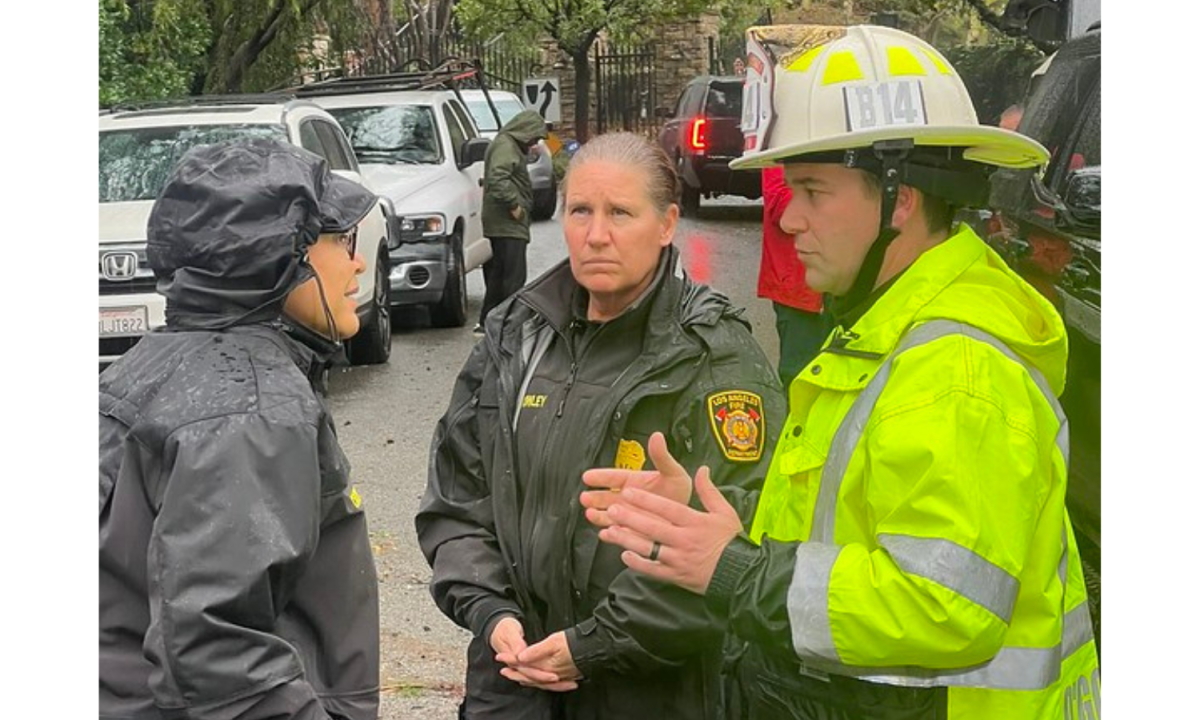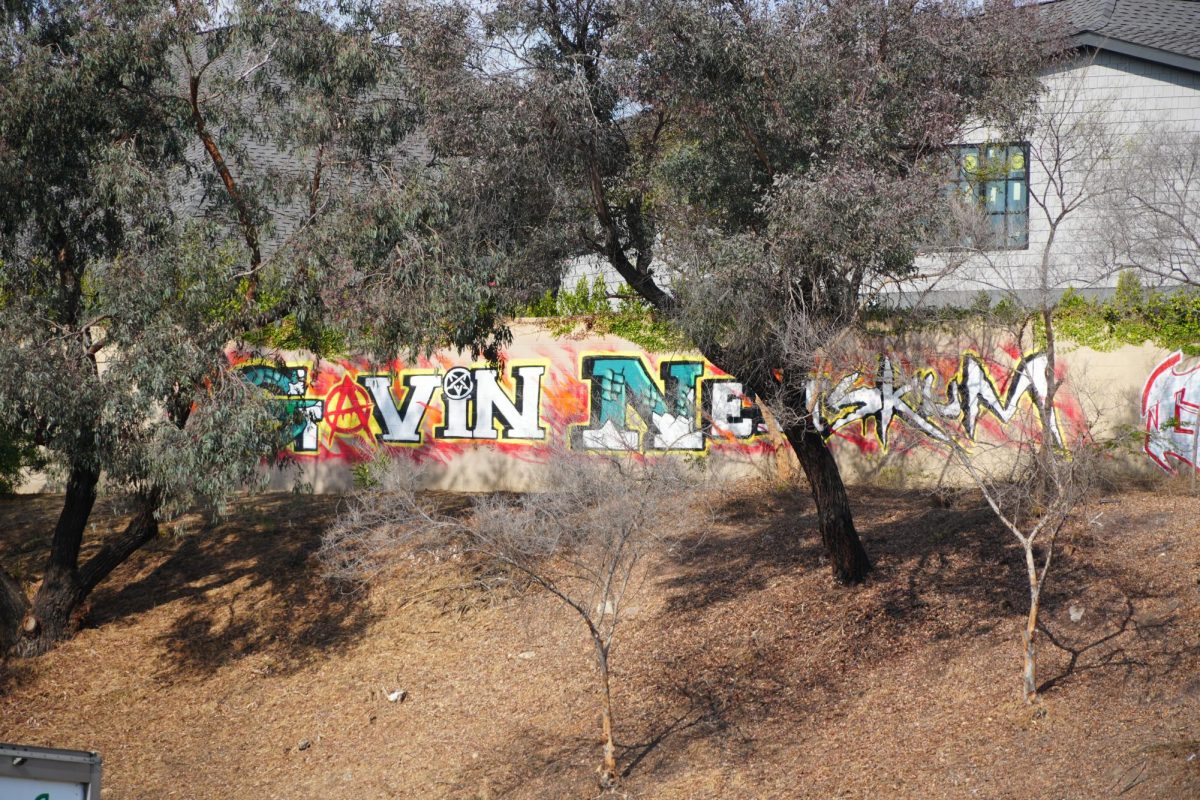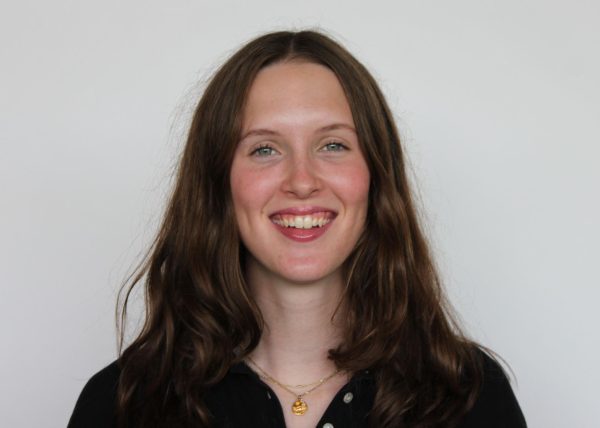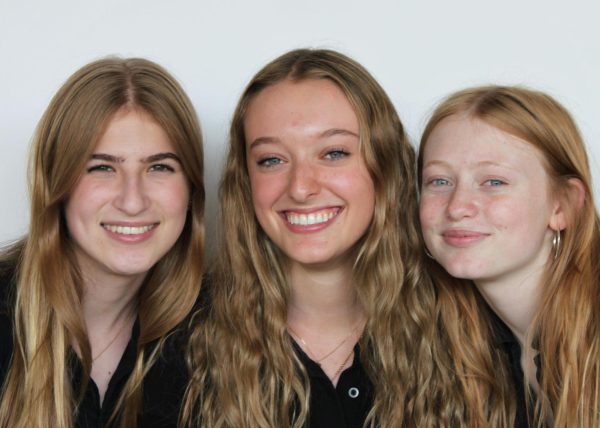This election season, Marlborough has expanded its election-themed programming in order to further educate the student body about the political process.
Because of faculty and students’ efforts to increase political discourse and education, the 2024 presidential election season has had the most political programming on Marlborough’s campus in many years.
“I wanted to make sure that the [election programming] didn’t just have to be internal because we have resources to bring in experts,” Dean of Students Kendall Beeman said. “Now there is definitely more [happening] than there was in 2016 and in 2022 for the midterm.”
This year, the administration organized two election-centered All-School Meetings (ASM), the first of which was hosted on Sept. 24 by Jessica Levinson ’98, a Loyola Marymount University law professor and political commentator. The ASM educated students on what the electoral process is and how it works, discussed voter fraud and featured a student Q&A about reproductive rights and student political involvement.
Associate Director at Stanford University’s Deliberative Democracy Lab Alice Siu hosted the second ASM on Oct. 8, which focused on political misinformation and its impact on the election.
Beeman said that she and other faculty members think it is important to educate students on the election process and allow room for any questions they may have.
“The goal is to help students understand what’s going on around them, ask questions, come to their own conclusions about what they think and understand more than just the presidential race,” Beeman said.
On Oct. 24, Marlborough will participate in the Close Up High School Deliberation Day, an online conference occurring in high schools nationwide. The event is led by Stanford’s Deliberative Democracy Lab and will allow high school students with different political views to talk with one another. Students will participate in a 60-minute teen discussion and listen to a 30-minute expert panel. Beeman said the administration decided to add this event because it is important to introduce students to diverse political perspectives.
“A lot of our students are used to talking to people who agree with them so being able to talk to other people their age around the country with different ideas and just practice civil discourse is a good opportunity,” Beeman said.
Beeman has also helped plan short election lessons for all history classes at Marlborough. Each teacher will tailor these 10-20 minute lessons to fit the grade level and specific courses they teach.
An advisory lesson created by the Close Up Foundation — a nonpartisan civic education organization — will also occur on Oct. 24 to teach students how to engage in political discourse with people who have different views.
“[Close Up] has a lot of pre-planned lessons on how to teach students to have good civil discourse, which is the same as those deliberation days that are focused on talking amongst difference and not alienating people for having different ideas,” Beeman said.
The Mock Election is returning as part of Marlborough’s standard election programming and will take place on Election Day on Nov. 5. Run by the Informed Electorate Club, whose leaders are Siena ’25, Paloma ’26 and Ruby ’26, students will anonymously vote for their preferred presidential candidate in cubicles that mock polling centers. They will also cast a vote for a variety of local initiatives.
In addition to events scheduled by faculty, many students, – like those in the Informed Electorate Club – have contributed to Marlborough’s election programming. Dolores ’25 and Georgia ’25 ran a voter registration drive on Sept. 24 in an effort to get students registered or pre-registered to vote before the election. The Informed Electorate Club has also been working on 30-minute civics lessons for 7th grade history classes that discuss how propositions get on the ballot.
“It can be really difficult to figure out how to register to vote, so a lot of teenagers choose not to,” Dolores said. “We thought a voter registration drive could help people understand the process and know why each person’s vote matters.”

